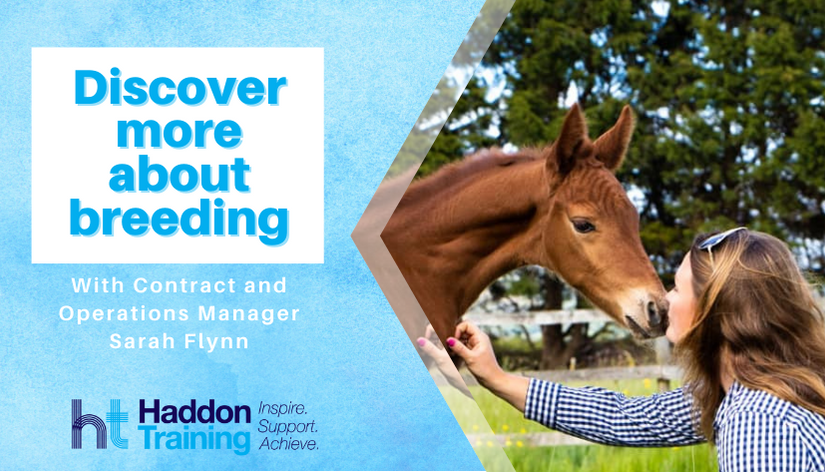
With the British Breeding Futurity evaluations now underway we decided to speak to our Contract and Operations Manager, Sarah Flynn about her experiences in breeding and what these evaluations mean to her.
The futurity evaluations use criteria appropriate for a horse’s age and intended discipline to evaluate and give feedback on talented young sport horses and ponies for the purpose of collecting data on British breeding.
Sarah says,
“I initially began breeding after I purchased my dream dressage horse, Hyalita-K (Charmeur X San Remo), from Holland, with the help of Rebecca Hughes of Hughes Dressage. Unfortunately, Hyalita-K sustained an injury which made her unhappy in her ridden work, so we retired her to breeding. She was already graded by the KWPN (Studbook of the Royal Dutch Sport Horse) and received the PROK and STER predicates, so was recommended for breeding, which was very fortuitous.
There are so many rewarding moments having home bred horses. From the moment they’re born, and you see that the foal is healthy and well, to the first time you see them move. As I breed for dressage, it is always exciting having my foals evaluated and graded, and it provides excellent insight. It’s so valuable to get feedback from leading industry specialists and feels very rewarding when it’s positive. My first foal was Flynnzatanz (stable name Hope) by sire Fidertanz, out of Hyalita-K. Flynnzatanz gained a Gold Premium overall with a score of 8.375 at her British Breeding Futurity evaluations, gaining a huge 9.25 as her potential score from the vet.
Our latest addition is Damaflynnco (stable name Daphne), again bred from Hyalita-K, but her sire is Damaschino I. Damaschino I won his stallion licensing in Germany as a 3-year-old, scoring very highly. On August 25th I will be presenting Damaflynnco under the dressage discipline and am really excited to see how her evaluation turns out!
Breeding is not without its challenges though; the delivery of a foal can be an anxious time, but also, it’s the most incredible thing to be a part of and witness. As breeders you also know you can’t keep them all, so having to let some foals go and finding them the perfect competition homes is always going to be hard.
Looking back, I honestly wish I could have taken a qualification that focused on breeding, but I feel lucky now that at least I am able to support others with this through my work at Haddon Training. I originally completed a generic horse care qualification, but the way apprenticeships can now be tailored to specific areas of interest enables them to cover so much of what you need to know for the future.”
A huge thank you to Sarah for giving us an insight into the equine breeding journey.
If you’d like to know more about how we can help you develop a career in breeding, simply contact our friendly team today.